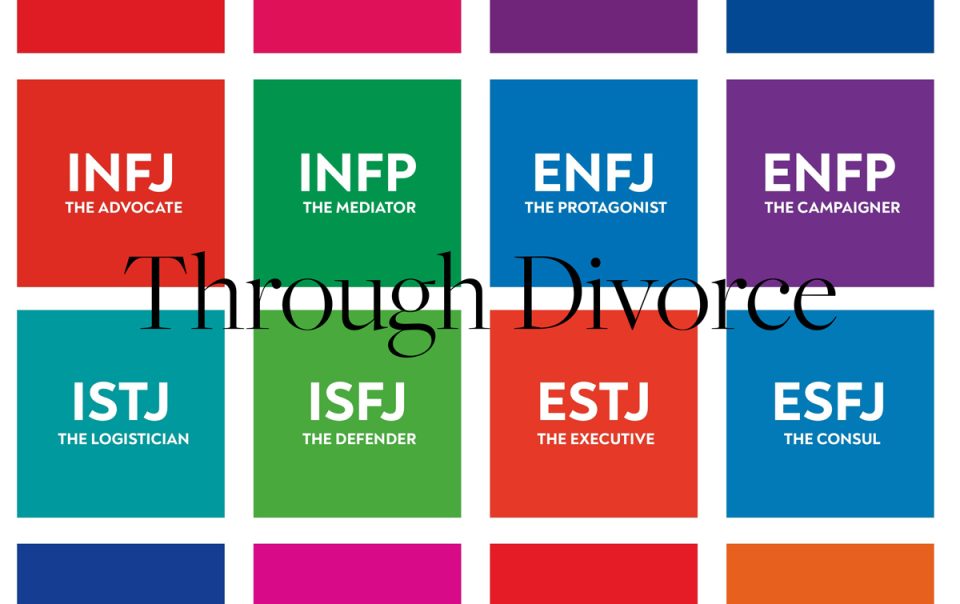Coping with divorce mediation stress
Manage your expectations
Often your experience of a difficult situation is impacted by your expectations going into it. Checking your expectations about how other parties will act, how you will react, and the process will help you understand how your expectations are impacting your mediation experience and how they will impact your divorce mediation stress.
- The mediator. A mediator’s job is to get you and your spouse to come to an agreement on important elements of your divorce settlement. Many people expect because the mediator is a neutral party, their interactions with them will also feel neutral. This is not often the case. During the process, they may ask you to consider your spouse’s point of view, compromise, or consider your child’s needs above your own. These requests can be triggering and may make you feel angry and defensive.
- Your spouse. How your spouse normally deals with conflict may give you an idea of how they will handle divorce mediation stress. Are they prone to angry outbursts and unkind words? Do they act differently in front of others, caring about how they look, or do they care little about other’s perceptions of them? Maybe they shut down in the face of conflict. Do they get stubborn and dig their heels in at even small points of compromise? How do they feel about your mutual assets, the money they’ve earned during your marriage and your role in the household?
- You. I’ve had many clients express surprise and/or disappointment with themselves for how they reacted during a mediation. Your spouse has been an intimate partner and most likely knows your hot buttons. Thinking about how you can most effectively deal with being triggered will make you more prepared. Also consider how you typically deal with conflict. Come to the table in good faith and with the desire to reach an agreement. Visualize acting in a way that will make you leave with your head held high.
- The process. How do you expect the process to go? How many meetings do you assume it will take to come to an agreement on all mediated issues? Expecting the process to go quickly is a mistake many people make. Expecting it to be mostly smooth is another mistake. Expecting that you will get everything you want will most likely result in you going to court. Clients who get a clear understanding from their mediator about the range of what is typical in terms of time, number of meetings, etc. have a much easier time managing their own expectations. Push yourself to be realistic when you hear what’s normal for other people and it will help you manage your divorce mediation stress.
Preparation
- Define what good self-care means to you and practice it in the days coming up to mediation. Get a good night’s sleep and eat healthy food.
- Put some thought into what will make you feel supported during the mediation. Consider bringing a favorite water bottle, snacks, paperwork, a notebook and pen, and the phone number of your attorney or a support person in case you need to reach them during a break.
- Plan what you will wear – choose clothes that make you feel confident and comfortable.
- Review strategies with a friend or your divorce coach like breathing and asking for breaks if you get triggered.
- Keep yourself from going into a negative spiral of anger and anxiety right before the meeting. Try to keep calm and remind yourself you have your own back and can be open to the process.
Coping strategies for the day of the mediation
- Stay attuned to your emotional and physical state. Notice signs that indicate you’re becoming dysregulated like shallow breaths, feeling like you have a lump in your throat, tenseness, knots in your stomach and redness in your face. As soon as you feel triggered, use a mindfulness strategy to keep yourself from escalating further. Your goal is to avoid shutting down or reacting in a way that may worsen the conflict.
- Ask for a break. Go outside and take a walk or call a friend. Brainstorm ideas about shifting your mindset or being more clear and effective in your communication when you return. If it’s a legal issue that’s got you tripped up, call your attorney if they aren’t already present.
- If you hear something triggering, instead of verbalizing or interrupting, write down your thought instead. This will give you a minute to pause and to think about how you want to respond in a rational instead of an emotional way. Or maybe you’ll decide it’s not worth responding at all. Sometimes ignoring an attempt by your spouse to get a rise out of you, is the most powerful thing you can do.
- Speak up for what you want from the divorce without making demands. Back up your reasoning with facts and provide an explanation for your point of view. A mediator can help you come together based on facts when you can’t see eye-to-eye emotionally. For example, if you want to ask for alimony (also called spousal maintenance in several states) and you haven’t been in the workforce for many years, explain that it’s because you’ll need job retraining or a money to earn a degree to get a job that will support you from then on.
- Know what you are willing to accept before you enter the room. If something is offered that you think is reasonable, say so. Many people regret not taking a good offer when it comes along because they don’t trust their decision-making or think that they can hold out for something better.
- Don’t treat mediation like a couples therapy session. Pay close attention to what the mediator is asking from you and provide an answer that is based on the desired outcome, not your exes past behavior. For example, if the mediator asks you to propose a custody schedule, don’t start listing all the reasons your ex isn’t a great dad.
After the mediation
If you anticipate that the mediation will be difficult, make an appointment with your divorce coach or counselor to see them shortly after. Knowing that you can process the event may give you some peace of mind and feelings of support. Be gentle with yourself no matter how it goes.
Getting support
Don’t have a divorce coach and need someone who can support you through your mediation process? I’d love to help you through the process so it feels less like you’re running a gauntlet alone and more like you’re ready to start your new life with promise. Contact me and let’s get started.


























